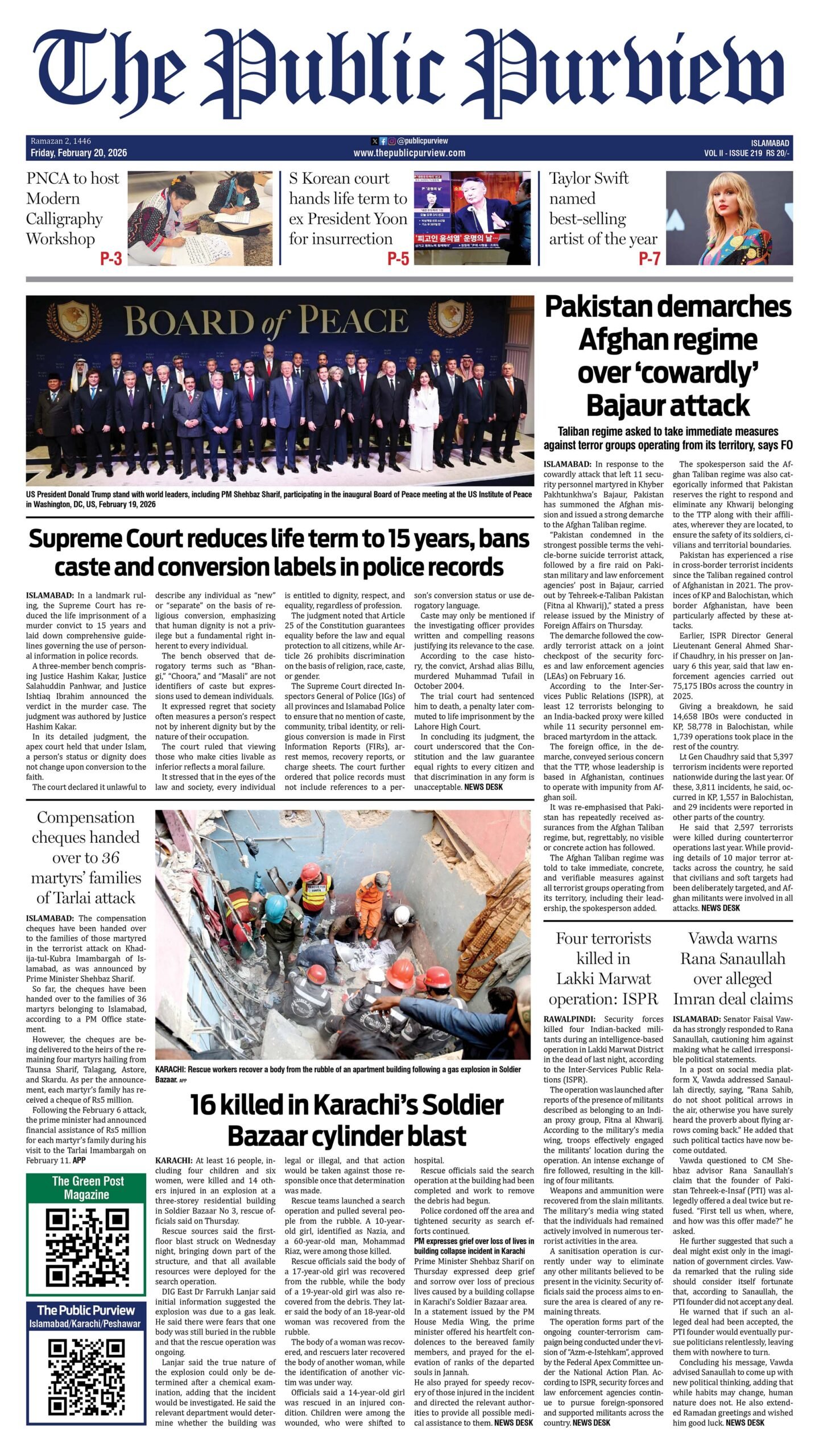Nobel Peace Prize laureate Malala Yousafzai has highlighted the global crisis in girls’ education and stressed the need for collective action to ensure every girl has access to education. “We should start by recognizing what we are up against, a crisis that is holding back our economy by hundreds of billions in lost growth, a crisis that is damaging the health, safety and security of our people,” Malala said in her speech on the second day of the “International Conference on Girls’ Education in Muslim Communities: Challenges and Opportunities” on Sunday. The federal capital hosted a two-day conference that brought together global experts, educators to address issues related to girls’ education in Muslim countries. Pakistan faces its own serious education crisis, with more than 22 million children out of school, one of the highest numbers in the world, according to government figures. Malala emphasized that “if we do not address this crisis, our society will not prosper as it should.” “We cannot live by the basic Islamic values of seeking knowledge.” According to her, this conference is an encouraging first step. “But we can only have an honest and serious conversation about girls’ education when we mention its worst violations.” The event was rejected by Afghanistan’s Taliban government, with Education Minister Khalid Maqbool Siddiqui telling AFP that Islamabad had sent an invitation to Kabul “but no one from the Afghan government was at the conference”. Since returning to power in 2021, Afghanistan’s Taliban government has imposed a harsh version of religious law that the United Nations calls “gender apartheid.” Their curbs denied women and girls access to high school and university education, as well as many government jobs, and caused them to be excluded from many aspects of public life. Muhammad Al Issa, a Saudi cleric and secretary general of the Muslim World League – which supported the summit – said “religion is not a reason to block girls from school”. Meanwhile, Pakistan faces its own serious education crisis, with more than 22 million children out of school, one of the highest numbers in the world, according to government figures. “A whole generation of girls deprived of their future” Malala said girls in a number of Muslim countries, including Yemen and Sudan, live in dire conditions, facing poverty, violence and forced marriage. “A whole generation of girls in Afghanistan is being robbed of their future. This conference will not serve its purpose if we don’t talk about the education of Afghan girls,” she said, adding: “The Taliban-controlled country is the only one in the world where girls are completely denied an education.” As a schoolgirl in 2012, Malala was shot in the face by the outlawed Tehreek-e-Taliban Pakistan (TTP) while campaigning for women’s rights to education. At the time, militancy was rife in the region as war raged across the border in Afghanistan between the Afghan Taliban and NATO forces. Malala was evacuated to the UK after her attack and became a global advocate for girls’ education and, at 17, the youngest winner of the Nobel Peace Prize. She won the 2014 Nobel Peace Prize for her activism and has since become a global advocate for women’s and girls’ rights to education.







 Today's E-Paper
Today's E-Paper